Is White Wine Worse Than Red? The Hidden Cancer Connection
Ankita Rai | Wed, 26 Mar 2025
For years, wine has been marketed as a sophisticated and even health-friendly drink, especially red wine. But how does it really impact cancer risk? This article uncorks the truth behind wine cancer risk, exploring scientific evidence on how both red and white wine contribute to cancer development. From alcohol's role as a carcinogen to whether white wine poses additional risks, we break down what you need to know before pouring your next glass.

( Image credit : Pexels )
Photo:
Wine has been at the center of health arguments for decades. Some say a glass of red wine a day keeps the doctor away, while others caution that even moderate drinking can be dangerous for your health. But the truth is somewhere in between — and when it comes to wine cancer risk, nowhere near where the headlines have suggested.
Let’s uncork the science of wine cancer risk, clearing fact from fiction.
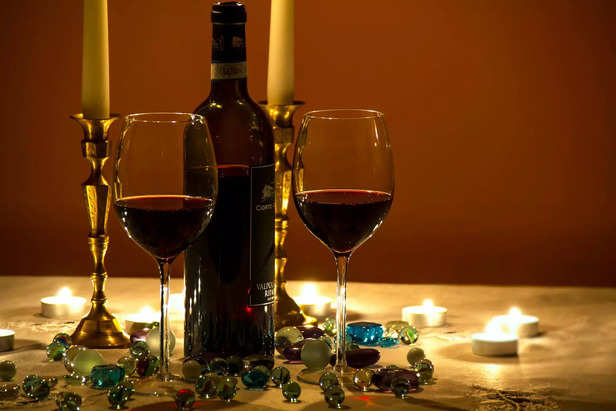
Alcohol is a known human carcinogen, which means it can cause cancer. Alcohol consumption is estimated to play a role in roughly 3.5 percent of all cancer deaths in the U.S. It has been associated with cancers of the mouth, throat, esophagus, liver, breast and colon. But how does this happen?
When you drink alcohol, your body processes it into acetaldehyde — a toxic compound that harms DNA and hampers your body’s repair efforts. It is also because alcohol raises estrogen levels, which can increase the likelihood of breast cancer. Drinking also impairs your body’s ability to metabolize chemicals that could harm you, which makes it more vulnerable to other carcinogens. This means wine cancer risk is not a myth, it’s science backed.
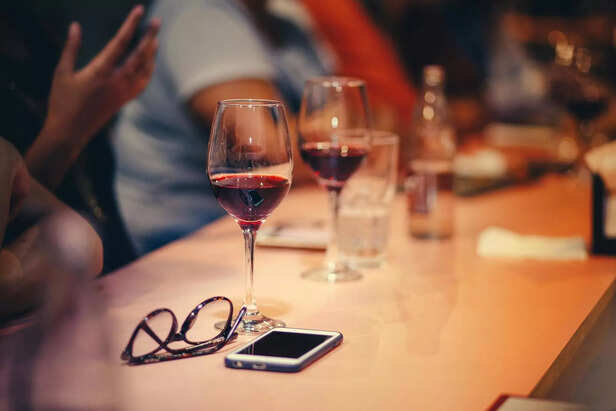
For a long time, red wine has had a reputation as the “healthier” alcoholic drink, thanks to things like antioxidants such as resveratrol, which some studies suggest can support heart health. But does that make it a safer choice in terms of wine cancer risk?
Not really. Recent studies have shown that a glass of red wine is not less of a cancer risk than a glass of any other drink. A 2022 meta-analysis published in Nutrients looked at data from 42 studies. It concluded that red and white wine have similar cancer risks. So, that glass of merlot is not necessarily a safer choice.
The notion that red wine is somehow healthier because of antioxidants such as resveratrol doesn’t hold water, says Dr. Eunyoung Cho, a researcher at Brown University. It is the alcohol content itself that causes the increased risk of cancer.” In other words, any heart health benefits from red wine have been outweighed by the risks of alcohol, confirming the importance of wine cancer risk.
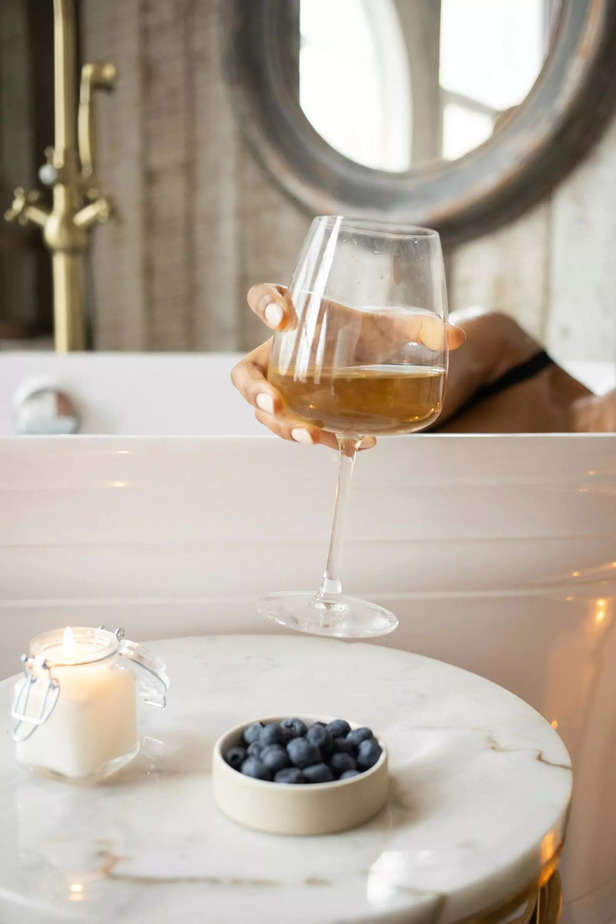
Red wine tends to hog the limelight, but white wine has its own issues. White wine drinkers run a higher risk of skin cancer, especially melanoma, some studies show. No one really knows why, although some scientists speculate that the phenols in white wine might boost sun sensitivity.
White wine is also associated with heightened overall cancer risk among women. While all alcoholic beverages elevate cancer risk, this poses an important question: Are certain compounds found in white wine making things worse? There’s more research required, but one thing is crystal clear—there’s no “safer” wine between white or red with wine cancer health risk.
You know how people say that when they drink wine red wine, for example — they can’t eat well or that it gives them cancer?
With mounting evidence, health officials are calling for increased awareness. To the point, in early 2025, U.S. Surgeon General Dr. Vivek Murthy issued a report confirming the direct link between even light alcohol consumption and cancer. He argued that all alcoholic drinks — including wine — should carry warning labels, just like cigarettes.
Other countries are doing the same. Ireland has already introduced cancer warnings on alcohol bottles, and conversations are ongoing in other countries. The World Health Organization has also spoken out, asserting that any amount of alcohol consumption carries no safe level when it comes to cancer.
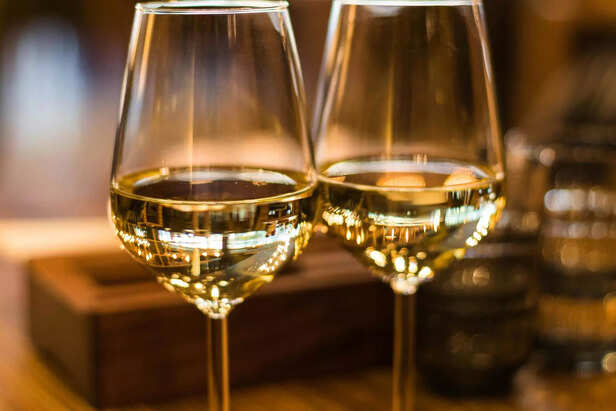
But if you like wine, do you have to stop altogether? That’s a personal choice, but as always, being informed is critical. Here’s what you can do:
U.S. guidelines recommend that women cut back to no more than one drink a day and men to just two drinks a day. But remember, even modest quantities raise the risk of wine cancer.
If the ritual of pouring a glass of wine fascinates you, search for non-alcoholic wines or other drinks that provide the same sensory experience without health concerns.
Stay up to date on the latest research regarding wine cancer risk for informed decision making on drinking.
If you have a family history of cancer, you should talk to a healthcare provider about whether drinking wine is right for you.
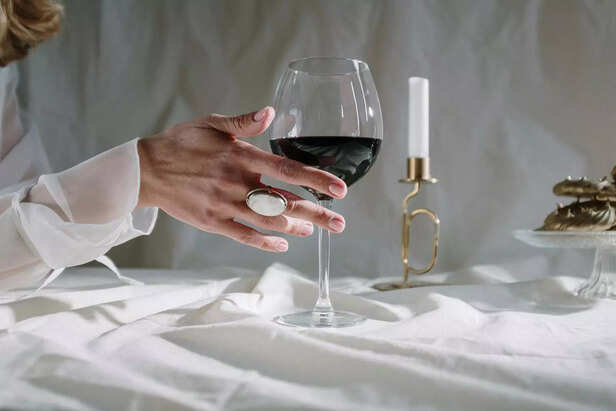
Wine has somehow long been romanticized as a sophisticated — and even health-boosting — beverage. But the reality is plain: If it’s red, white or bubbly, the risk of a wine cancer is real. While moderate drinking may remain a consideration for some, navigating the associated hazards with every swallow is a must.
So before you pour that next glass, ask yourself — is it worth it?
Yes, staying informed means making choices that keep your health in check, and without any trapdoors from the myths that have been surrounding wine cancer risk for years and years.
Unlock insightful tips and inspiration on personal growth, productivity, and well-being. Stay motivated and updated with the latest at My Life XP.
Let’s uncork the science of wine cancer risk, clearing fact from fiction.
Alcohol and Cancer: A Link You Shouldn’t Ignore

wine
( Image credit : Pexels )
Alcohol is a known human carcinogen, which means it can cause cancer. Alcohol consumption is estimated to play a role in roughly 3.5 percent of all cancer deaths in the U.S. It has been associated with cancers of the mouth, throat, esophagus, liver, breast and colon. But how does this happen?
When you drink alcohol, your body processes it into acetaldehyde — a toxic compound that harms DNA and hampers your body’s repair efforts. It is also because alcohol raises estrogen levels, which can increase the likelihood of breast cancer. Drinking also impairs your body’s ability to metabolize chemicals that could harm you, which makes it more vulnerable to other carcinogens. This means wine cancer risk is not a myth, it’s science backed.
Is Red Wine Really the ‘Healthier’ Choice?

consuming alochol
( Image credit : Pexels )
For a long time, red wine has had a reputation as the “healthier” alcoholic drink, thanks to things like antioxidants such as resveratrol, which some studies suggest can support heart health. But does that make it a safer choice in terms of wine cancer risk?
Not really. Recent studies have shown that a glass of red wine is not less of a cancer risk than a glass of any other drink. A 2022 meta-analysis published in Nutrients looked at data from 42 studies. It concluded that red and white wine have similar cancer risks. So, that glass of merlot is not necessarily a safer choice.
The notion that red wine is somehow healthier because of antioxidants such as resveratrol doesn’t hold water, says Dr. Eunyoung Cho, a researcher at Brown University. It is the alcohol content itself that causes the increased risk of cancer.” In other words, any heart health benefits from red wine have been outweighed by the risks of alcohol, confirming the importance of wine cancer risk.
What About White Wine? The Lesser-Known Risks

white wine
( Image credit : Pexels )
Red wine tends to hog the limelight, but white wine has its own issues. White wine drinkers run a higher risk of skin cancer, especially melanoma, some studies show. No one really knows why, although some scientists speculate that the phenols in white wine might boost sun sensitivity.
White wine is also associated with heightened overall cancer risk among women. While all alcoholic beverages elevate cancer risk, this poses an important question: Are certain compounds found in white wine making things worse? There’s more research required, but one thing is crystal clear—there’s no “safer” wine between white or red with wine cancer health risk.
You know how people say that when they drink wine red wine, for example — they can’t eat well or that it gives them cancer?
With mounting evidence, health officials are calling for increased awareness. To the point, in early 2025, U.S. Surgeon General Dr. Vivek Murthy issued a report confirming the direct link between even light alcohol consumption and cancer. He argued that all alcoholic drinks — including wine — should carry warning labels, just like cigarettes.
Other countries are doing the same. Ireland has already introduced cancer warnings on alcohol bottles, and conversations are ongoing in other countries. The World Health Organization has also spoken out, asserting that any amount of alcohol consumption carries no safe level when it comes to cancer.
What Can You Do? Smart Choices for Your Health

glasses of wine
( Image credit : Pexels )
But if you like wine, do you have to stop altogether? That’s a personal choice, but as always, being informed is critical. Here’s what you can do:
Know Your Limits —
Opt for Alcohol-Free Alternatives —
Stay Educated –
Consult with Your Doctor –
And the conclusion: The Lie of the Glass

wine consumption
( Image credit : Pexels )
Wine has somehow long been romanticized as a sophisticated — and even health-boosting — beverage. But the reality is plain: If it’s red, white or bubbly, the risk of a wine cancer is real. While moderate drinking may remain a consideration for some, navigating the associated hazards with every swallow is a must.
So before you pour that next glass, ask yourself — is it worth it?
Yes, staying informed means making choices that keep your health in check, and without any trapdoors from the myths that have been surrounding wine cancer risk for years and years.
Unlock insightful tips and inspiration on personal growth, productivity, and well-being. Stay motivated and updated with the latest at My Life XP.
Frequently Asked Questions ( FAQ's)
- Is drinking wine a cancer risk?
Yes, even moderate wine consumption has been linked to an increased cancer risk due to alcohol’s carcinogenic effects. - Is wine the safest alcohol to drink?
No, all alcoholic beverages, including wine, contribute to cancer risk, regardless of type. - What increases cancer risk?
Alcohol consumption, smoking, poor diet, lack of exercise, and genetic factors can all contribute to cancer risk. - What are the 7 cancers linked to alcohol?
Alcohol is linked to cancers of the mouth, throat, esophagus, liver, breast, colon, and rectum.










